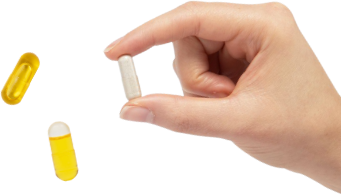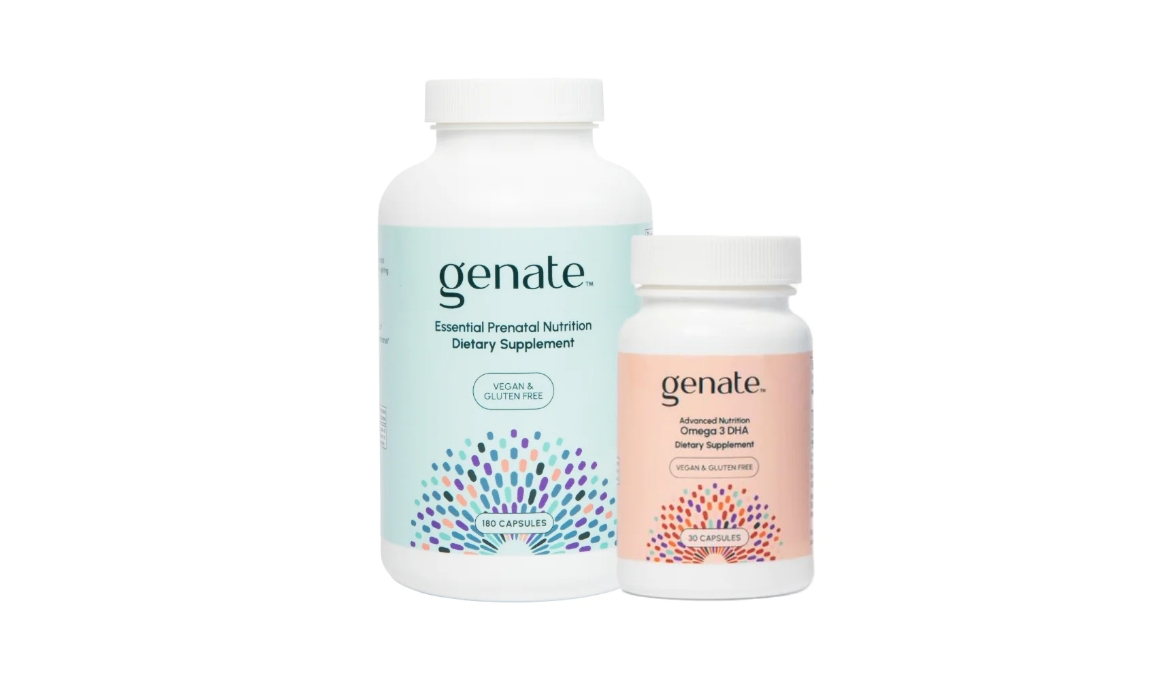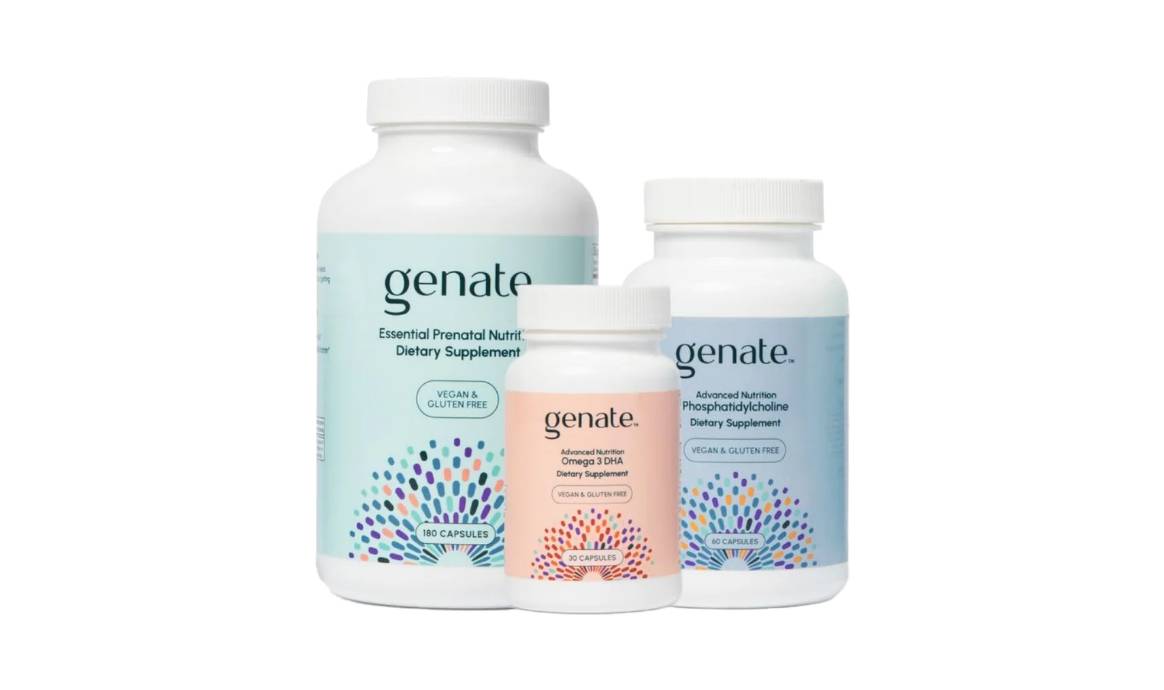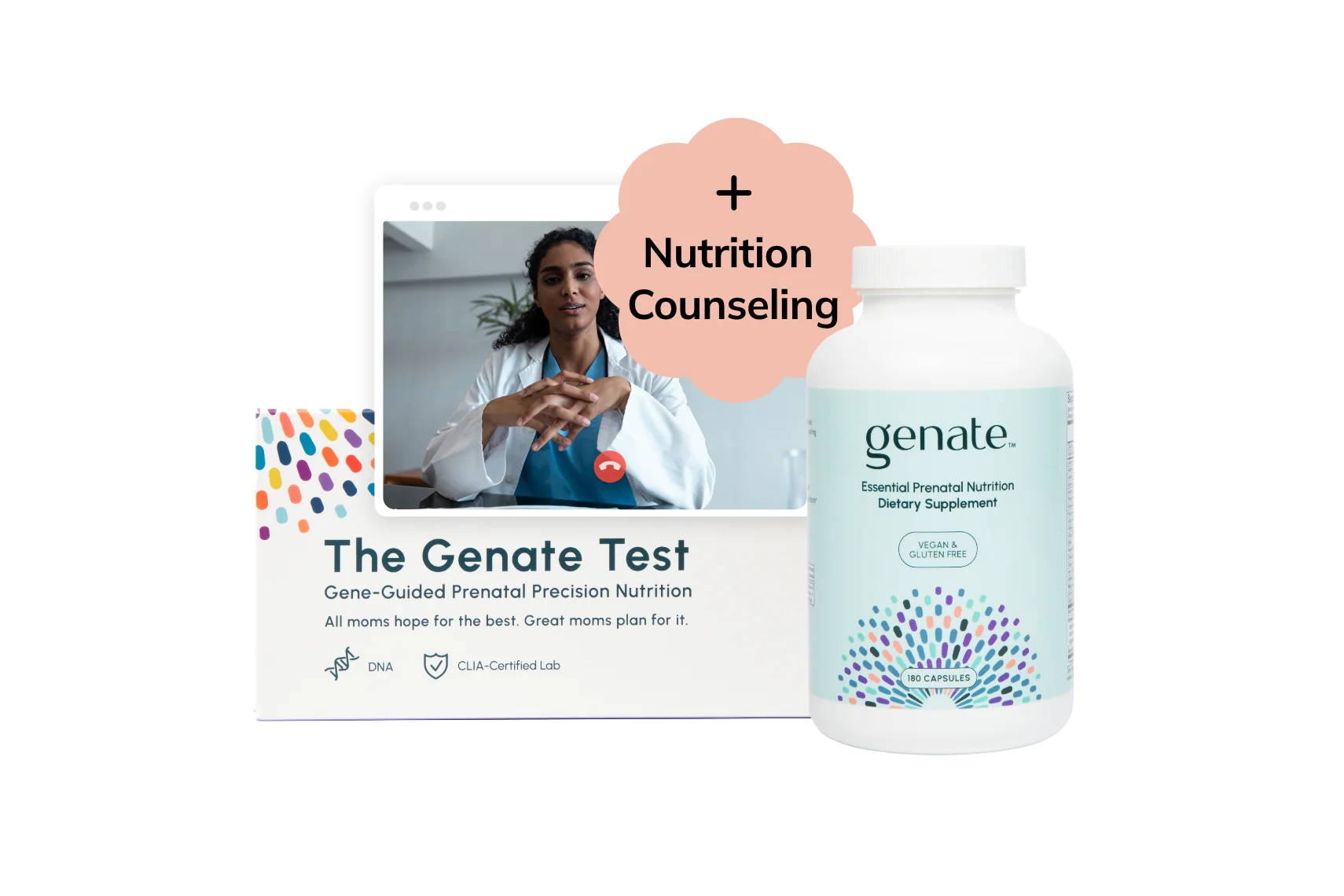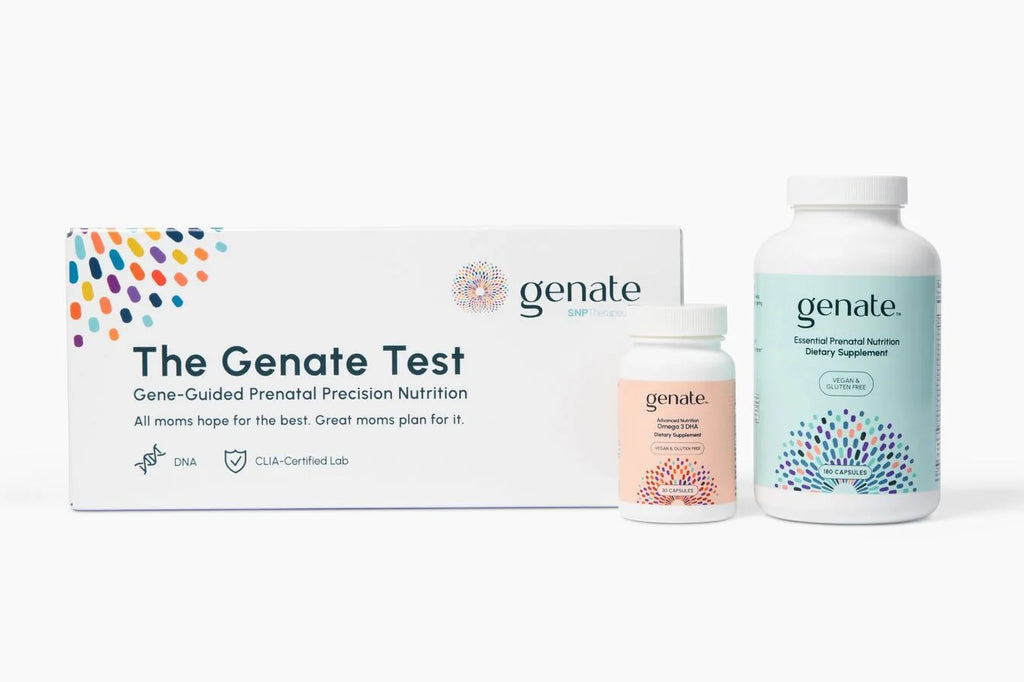Betaine has been found to have anti-inflammatory effects, which may help protect against conditions such as obesity, diabetes, and other inflammatory-related diseases. This can be beneficial during pregnancy as it may help in managing inflammation-related conditions.

PRENATALS
Betaine Benefits: Supporting a Healthy Pregnancy
by Libby Pellegrini, MMS, PA-C
Medically reviewed by Cara Everett, MS, RDN, LDN
August 5, 2024 • 6-minute read
Getting the right nutrition through food and supplements is critical for a healthy pregnancy journey. One key nutrient is betaine. Follow this guide to learn more about betaine benefits and how they can support your pregnancy.
During pregnancy, a number of nutrients support your health and that of your baby. One of these nutrients is betaine, also known as trimethylglycine. (1)
Read on to learn more about how betaine is used in the body, why it’s important during pregnancy, and which form to choose for your baby’s growth and development.
What Is Betaine Used For?
Betaine is a one-carbon nutrient with numerous health advantages. It plays a crucial role in cellular energy production, DNA formation, and the conversion of homocysteine to methionine, helping to maintain overall metabolic health. Certain foods like spinach and wheat naturally contain betaine, offering a dietary source of this beneficial compound. Additionally, your body can produce betaine from another one-carbon nutrient, choline, further supporting your health. By including betaine-rich foods in your diet, you can experience the numerous betaine benefits, such as improved cardiovascular health, enhanced liver function, and better muscle performance.
Homocysteine is a compound associated with an increased risk of heart disease, high blood pressure, and stroke. Betaine supplements are used to reduce homocysteine levels in people with elevated homocysteine, as well as those with rare genetic condition known as homocystinuria. (3,4)
The Dietary Guidelines for Americans don’t include a recommended intake level for betaine, although researchers have found that 9-15 g/day is a safe dose. (5)
Food Sources of Betaine
See the table below for ways to get more betaine in your diet.
Food
Serving Size
Milligrams (mg) Per Serving
Shrimp and other shellfish
3 oz
548
Wheat germ
¼ cup
357
Wheat bran
194
Spinach
1 cup
194
Beets
½ cup
159
Pretzels
1 oz
66
Wheat bread
1 slice
64
Wondering what else is important to include in your pregnancy diet? Check out our complete guide to first trimester nutrition and discover the betaine benefits.
The Benefits of Betaine
Betaine is used for a number of purposes in your body, some of which relate directly to pregnancy.
- Proper fetal growth: Research has shown that expectant mothers with higher blood levels of betaine have a lower risk of giving birth to a child that is large for gestational age (LGA). (6)
- Lower risk of gestational diabetes: High maternal betaine levels have also been correlated with a lower risk of gestational diabetes in singleton pregnancies. A recent study also showed that increased maternal levels of betaine, measured in the middle of pregnancy, were linked with a lower risk of gestational diabetes in twin pregnancies as well. (7)
- Fetal cognitive development: Research has shown that higher levels of betaine during pregnancy are associated with improved cognitive development in infants, as assessed by cognitive test scores at 18 months of age. (8)
- Reduced homocysteine: Betaine helps reduce homocysteine in the blood by acting in the conversion of homocysteine to methionine.
Is Betaine or Betaine HCl Better for Pregnancy?
Betaine is available in different forms. It can be extracted from beets as natural anhydrous betaine or synthesized in two different forms (synthetic anhydrous betaine or betaine hydrochloride).
Betaine hydrochloride was previously included in over-the-counter (OTC) medications to improve digestion. But in 1998, the US Food and Drug Administration (FDA) banned its use in OTC medications due to a lack of adequate data proving its use as a digestive aid. (9)
Most prenatal supplements don’t contain betaine, but those that do primarily use betaine hydrochloride. Only the Genate Essential Prenatal uses anhydrous betaine, the preferred form for use in foods and supplements. (10)
Is Betaine Safe for Pregnancy?
Yes. Betaine is a nutrient that occurs naturally in foods and the body. It's vital for proper fetal development and keeping homocysteine levels within a normal range.
The Bottom Line
Betaine is an important component of a healthy pregnancy. Getting enough betaine when you’re pregnant, either through diet or a prenatal vitamin, can ensure that you’re safeguarding your own health and that of your developing baby.
Betaine is not the only nutrient needed for a healthy pregnancy. To learn more about tailoring a nutrition plan to your individual needs based on your genetics, check out the Genate Test.
This article is not intended as medical advice to treat or diagnose any health condition but rather as educational health information for the general public. It should not be used as a substitute for individualized medical care from your healthcare provider.
Shop the Article
Save 23% today!
Genate Essential Prenatal Multivitamin + Advanced Omega-3 DHA Package
Bundle to increase savings and provide the foundational nutrients needed for optimal health and development.
From $72 per month
Save 23% today!
Comprehensive Prenatal Support Package
Genate Essential Prenatal Multivitamin + Advanced Omega-3 DHA + Phosphatidylcholine
Our most comprehensive bundle - you’ll receive our Essential Prenatal Multivitamin, Advanced Phosphatidylcholine, and Advanced Omega-3 DHA.
From $110 per month
Save 30% today!
Comprehensive Prenatal Nutrition Bundle
Buy the Genate Test and a nutrition counseling session with a Genate registered dietitian, and receive a 30-day supply of the Genate Essential Prenatal Multivitamin FREE. Purchase includes a 90-day prenatal multivitamin subscription at our best monthly price.
$309

About Libby Pellegrini, MMS, PA-C
Libby Pellegrini, MMS, PA-C, is a professionally trained journalist and physician assistant. She has worked in numerous healthcare settings, including the rural United States, an inner-city Level I trauma center, and several suburban acute care centers. It was during her time at a functional medicine clinic in Southeast Asia that she developed an interest in the role of SNPs in personalized genetic evaluation and discovered how gene-guided nutritional counseling can enhance individual health outcomes.
Libby graduated Magna Cum Laude from Northwestern’s Medill School of Journalism, and her medical writing has appeared in a number of outlets, including WebMD, RxSaver, KevinMD, NPHIC, and Men’s Health.
References
- Trimethylglycine. NYU Langone Health. https://froemkelab.med.nyu.edu/surgery/content?ChunkIID=21871 Updated September 2014. Accessed October 17, 2023.
- Arumugam MK, Paal MC, Donohue, TM, Ganesan M, Osna NA, Kharbanda KK. Beneficial effects of betaine: a comprehensive review. Biology. 2021;10(6): 456. https://doi.org/10.3390/biology10060456
- Homocystinuria. MedlinePlus. https://medlineplus.gov/genetics/condition/homocystinuria/ Updated May 1, 2023. Accessed October 17, 2023.
- Betaine. Mount Sinai Health. https://www.mountsinai.org/health-library/supplement/betaine Accessed September 25, 2023.
- Stuart C. Betaine in human nutrition. AJCN. 2004;80(3):539-549. https://doi.org/10.1093/ajcn/80.3.539
- Du Y-F, Wei Y, Yang J, Cheng Z, Zuo X, Wu, T, et al. Maternal betaine status, but not that of choline or methionine, is inversely associated with infant birth weight. Brit J Nutr. 2019;121(11):1279-1286. https://doi.org/10.1017/S0007114519000497
- Gong X, Du Y, Li X, Yang J, Zhang X, Wei Y, Zhao Y. Maternal plasma betaine in middle pregnancy was associated with decreased risk of GDM in twin pregnancy: a cohort study. Diabetes Metab Syndr Obes. 2021;14:2495-2504. https://doi.org/10.2147/DMSO.S312334
- Wu BTF, Dyer RA, King DJ, Richardson KJ, Innis SM. Early second trimester maternal plasma choline and betaine are related to measures of early cognitive development in term infants. PLoS One. 2012;7(8):e43448. https://doi.org/10.1371%2Fjournal.pone.0043448
- CFR-Code of Federal Regulations Title 21. U.S. Food and Drug Administration. https://www.accessdata.fda.gov/scripts/cdrh/cfdocs/cfcfr/CFRSearch.cfm?fr=310.540 Updated June 7, 2023. Accessed September 25, 2023.
- Dobrijević D, Pastor K, Nastić N, Özogul F, Krulj J, Kokić B, et al. Betaine as a Functional Ingredient: Metabolism, Health-Promoting Attributes, Food Sources, Applications and Analysis Methods. Molecules. 2023;28(12):4824. https://doi.org/10.3390/molecules28124824
Take the Genate Quiz
Take our Nutrition Quiz to learn more about your nutrition journey.
Read Our Latest Articles
Frequently Asked Questions
Does betaine have anti-inflammatory effects during pregnancy?
How does betaine support liver function and detoxification during pregnancy?
Betaine assists in liver function by helping to break down and remove fats, and it also aids in detoxification processes. This support is crucial during pregnancy as the liver's workload increases to process the additional nutrients and waste products.
What are the recommended dietary sources of betaine for pregnant women?
Pregnant women can increase their betaine intake through foods such as spinach, beets, quinoa, and turkey. These foods are rich in betaine and can help meet the increased nutritional needs during pregnancy.
Are there any potential side effects of betaine supplementation during pregnancy?
While betaine is generally considered safe, some people may experience mild side effects such as diarrhea, stomach upset, and nausea. Pregnant women should consult their healthcare provider before starting any new supplement, including betaine, to ensure it is appropriate for their individual health needs.

